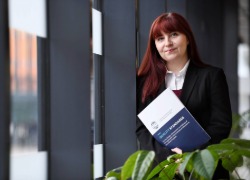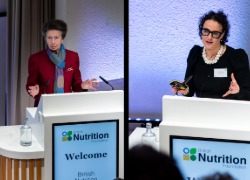Encouraging industry to think 'green'
Following on the success of an industrial recycling project led by an environmental team at the University of Teesside, a major ‘waste-sharing’ initiative is being launched in the North East next week.
The project is part of a National Industrial Symbiosis Programme (NISP) funded by the Department for the Environment, Food and Rural Affairs (Defra). It is led by Teesside University’s Clean Environment management Centre (Clemance) with support from The Centre of Process Innovation (CPI) at Wilton.
Christine Parry, who is managing the project at Clemance, said: “We’re different from many other environmental teams in universities because we don’t just do consultancy or research: we’re about finding ways of helping companies to work together to find useful ways of utilising materials or energy that would otherwise go to waste.
“A good example from our first project is the way BASF at Seal Sands is now sharing its spare capacity of high pressure steam with Dow Chemicals next door.”
Christine said the two-year Tees Valley project funded by Renew Tees Valley which ended last year saved businesses in the area over £2m; diverted 50,000 tonnes of waste and created 20 new jobs. Important steps forward as the country is running out of landfill sites
Now the concept of industrial symbiosis and the good practices being encouraged on Teesside will be spread across the region thanks to the NISP project which has attracted £1.2m from Defra, Renew Tees Valley and the regional development agency, One NorthEast.
Two events will help to launch the new project. Both are aimed at all industries, not just chemicals. The first half-day event takes place on the morning of September 15 at the Centre for Advanced, North Shields, and the second on the morning of September 28 at the Samsung Conference Centre.
Jim Cross, project manager of the CPI’s brokerage services, said: “Most companies are only aware of their own supply chains, they don’t necessarily know that teaming up with businesses from an entirely different industry can help them.”
He is currently carrying out a audit to find out which companies are producing different kinds of waste and trying to match them up with different industries and market sectors.
 Teesside academic leads the way in setting professional
...
Teesside academic leads the way in setting professional
... Teesside University leads new research into Roman Empire’s
...
Teesside University leads new research into Roman Empire’s
... Nourishing Tomorrow: my insights from the British Nutrition
...
Nourishing Tomorrow: my insights from the British Nutrition
...